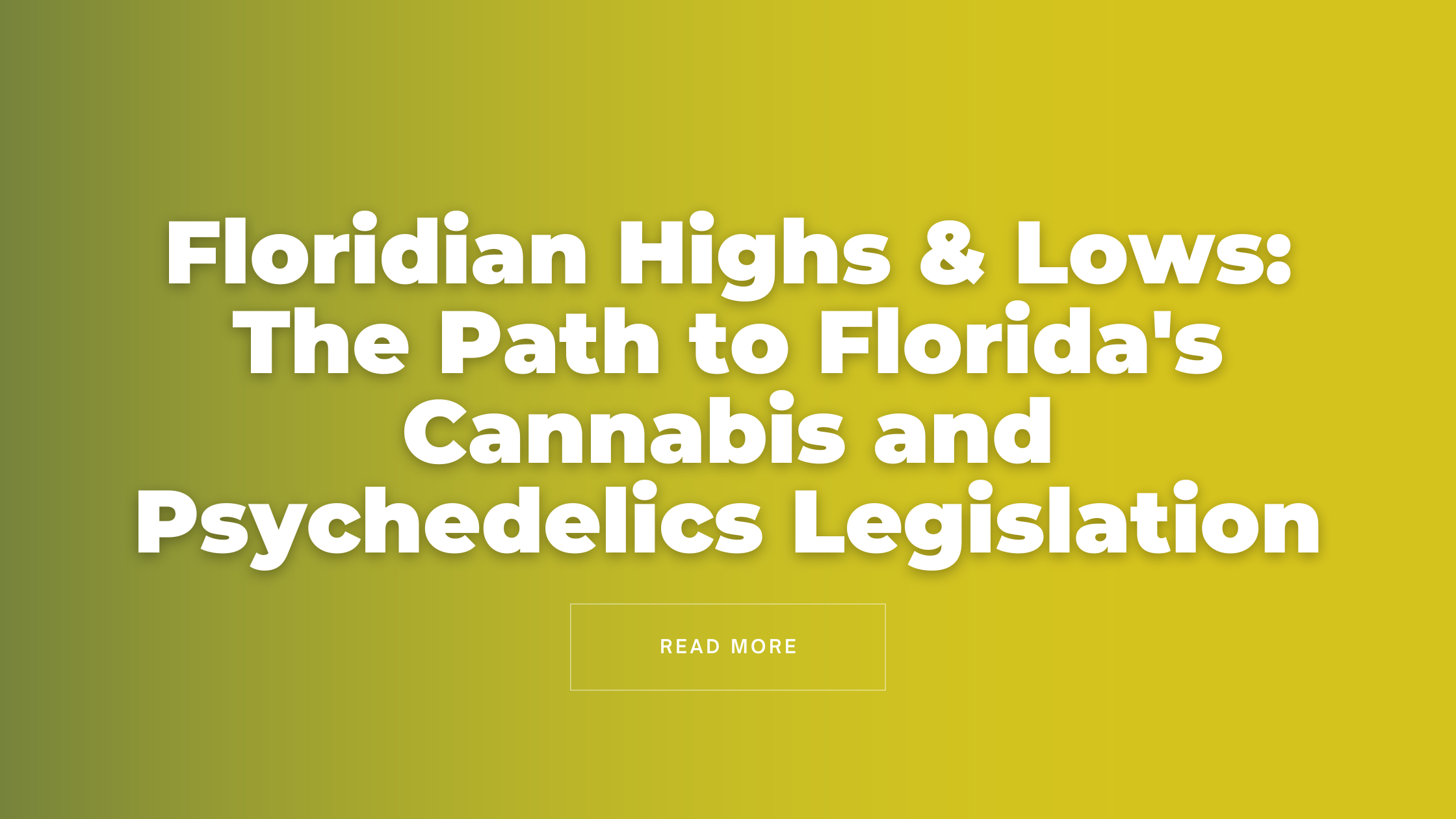
Floridian Highs and Lows: The Path to Florida's Cannabis and Psychedelics Legislation
In the tumultuous landscape of U.S. drug policy, tomorrow marks a pivotal day for voters in four states, including Florida, as they decide on significant shifts in cannabis and psychedelics legislation. This vote could reshape not only state economies but also national discourse on drug reform—a movement that's gaining both momentum and opposition across various political arenas.
A Pivotal Moment for Florida
Florida stands at the forefront with a high-stakes cannabis initiative that aims to legalize adult-use cannabis. Spearheaded by well-funded advocates like Trulieve, this measure requires a 60% supermajority to pass, aiming to transform Florida's burgeoning cannabis landscape. However, the path is riddled with challenges. The state's governor opposes the initiative, channeling resources into anti-pot campaigns that have sparked a defamation lawsuit, creating a climate of controversy and political tension.
The Broader Picture
Florida's push for cannabis legalization is part of a broader narrative across the United States. North Dakota and South Dakota will also cast their votes on the prospect of legalizing adult-use cannabis, hoping to overcome past setbacks and align with a more progressive approach to drug policy. Meanwhile, Massachusetts deliberates the decriminalization of certain psychedelics, such as psilocybin and mescaline, which would position it as the third state to enter the psychedelics sphere, albeit with some limitations on retail sales.
Challenges and Setbacks
While progress seems imminent, obstacles remain. In Nebraska, efforts to legalize medical marijuana face potential derailment due to last-minute signature complaints by the Secretary of State. In Arkansas, although voters can technically view a medical marijuana expansion question on their ballots, the state supreme court labeled the proposal as "misleading," ruling that those votes won't be counted. This highlights the intricate dynamics and legal barriers that persist in drug policy reform.
A Labor Rights Perspective from Oregon
In Oregon, the focus shifts to cannabis labor rights with a proposed measure that could require peace agreements in the industry, aligning it with other pro-union states. This development underscores the evolving nature of cannabis regulation, reflecting a broader commitment to workers' rights within the burgeoning legal cannabis industry.
Navigating Political Potholes
The discourse surrounding drug legalization is fraught with political potholes, characterized by fervent advocacy and staunch opposition. For Floridian Hemp Advocates, Cannabis Consumers, and Hemp Store Operators, the stakes are high. Understanding the nuances of these legislative efforts and their potential impact on local economies and communities is crucial.
The Role of Advocacy Groups
Advocacy groups play a pivotal role in shaping public opinion and policy outcomes, mobilizing voters through education and awareness campaigns. Their efforts are instrumental in ensuring that the complexities of drug policy reform are communicated effectively, highlighting both the societal benefits and potential challenges that accompany such monumental changes.
A Call to Action
For voters, advocacy groups, and political analysts, staying informed and engaged is paramount. The outcomes of these votes hold the potential to redefine the cannabis and psychedelics landscape in the United States, influencing future legislative initiatives and impacting countless lives.
Stay updated with our newsletter for the latest insights and developments in Florida's cannabis and psychedelics legislation. Together, we can drive informed action and usher in a new era of responsible, progressive drug policy reform.
[Sign up for our newsletter today!]
By remaining vigilant and proactive, we can collectively shape a future where cannabis and psychedelics legislation aligns with the values and aspirations of our communities.




